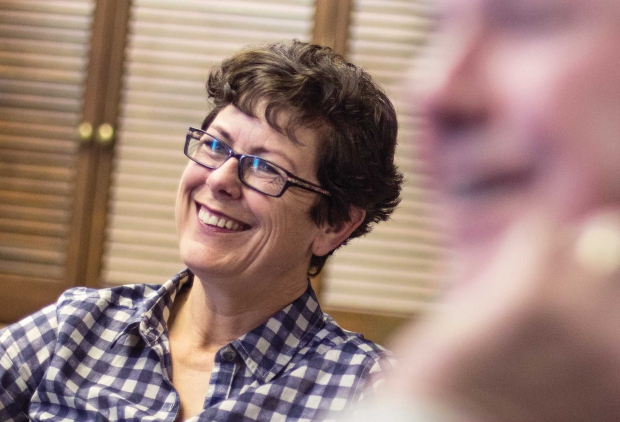
Laura Naumes (Mike Naumes in foreground) Laura is the first woman to chair Pear Bureau Northwest. She’s also vice president of the family growing and packing business and spends a month each spring, managing cherry packing at the family’s New Castle packing facility in northern California. (TJ Mullinax/Good Fruit Grower)
Laura Naumes is a trailblazer in the U.S. pear world. She is the second-in-command of a family-owned tree fruit growing and packing company, makes recommendations on industry-funded pear research, and is the first woman to chair the Pear Bureau Northwest.
As vice president of Naumes, Inc., Laura helps run the vertically integrated tree fruit grower-packer company headquartered in Medford, Oregon. The company has more than 2,500 acres of tree fruit and wine grapes planted in three states, and packing houses in two. She’s an active company vice president and relocates to northern California for about a month every spring during cherry season to manage their cherry packing operation near Marysville.
Laura grew up in Medford’s pear industry and learned about farming early in life, helping in her father’s orchard when she was eight years old with tasks like moving sprinkler pipe and with orchard heating. Her father, Ed Earnest, had about 500 acres of tree fruit and a packing house.
As she got older, her responsibilities increased from orchard tractor driving to running the packing house, and even selling some of their fruit.
“When I went to college, I knew that I wanted to come back home and be in the orchard,” Laura said, noting that she came home from Corvallis (Oregon State University) just about every weekend to help on the farm.
Laura was the son that her father didn’t have. “I have a sister who also helped with the family business, but she wasn’t as into it as I was,” Laura said.
Laura married Mike Naumes, also of Medford, and they will celebrate 32 years of marriage this year. Mike jokingly said, “I figured that since Laura and her father were beating me in the market, we needed to join forces.”
Join they did. When Laura’s father passed away, the Naumes family bought Laura’s mother’s interest in the Earnest pear orchards, adding the orchards to the Naumes Medford pear operations.
Mike and Laura have 24-year-old triplets—Sean, Joe, and Cynthia—who developed the strong work ethics of their parents by helping with the family business at a young age. Sean and Cynthia recently graduated from Santa Clara University, and Joe attended a technical college. Joe manages the informational technology department at Naumes, and
Sean is learning about the packing house. Cynthia works for Walmart’s e-commerce division in San Francisco, California.
Laura first got involved with the Northwest pear industry as a trustee/alternate of the Pear Bureau in 1982, and served in that capacity to 2001.
Pear Bureau board
The Pear Bureau was established in 1931 as a nonprofit marketing organization to promote, advertise, and develop markets for fresh pears grown in Oregon and Washington.
She has been a board member of the Pear Bureau since 2003 and a member of the Fresh Pear Committee (previously called the Winter Pear Control Committee) since 2000. Additionally, she’s served on the Fresh Pear Committee’s Research Subcommittee and the Pear Bureau’s Audit Committee.
“The Pear Bureau has a long and rich history of serving the Pacific Northwest,” said Laura. “I’m very proud to be affiliated with a very progressive and thoughtful organization and its members.”
She’s a past member of the Northwest Horticultural Council’s Science Advisory Council, the federal Codling Moth Areawide Management Program, and the District 12 advisory council to the Federal Reserve Bank, and has been appointed to the Oregon State University Board of Trustees.
It turns out that the Rogue Valley and southern Oregon, formerly known only as pear country, are also good places to grow wine grapes. In the last two decades, about 3,000 acres have been planted to wine grapes, and there are around 80 wineries, according to OSU.
Mike and Laura, once skeptical of the wine industry’s staying power in the region, are now converts. They planted their first vineyard last August on a steep hill below their home and are planning to put in another 25 acres of wine grapes in the near future.
Move over, pears
Laura went back to school last fall to learn viticulture and enology so she can better understand the wine industry.
She’s enrolled in the viticulture and enology certificate program at Southern Oregon Wine Institute, the first viticulture and enology program in Oregon outside the Willamette Valley. The Wine Institute, with its teaching vineyards, commercial scale winemaking facilities, and a wine incubator, provides degree, certificate, and continuing education programs through Umpqua Community College in Roseburg, Oregon.
Most of the coursework is online, but Laura drives 1.5 hours each Friday to participate in labs. “The labs alternate between vineyard and winemaking, and they are very hands-on,” she said. “We learned how to sample grapes for maturity before harvest and learned crush procedures. The classes will help me understand the whole process involved with wine grapes, from growing to winemaking.”
Mike and Laura hired a vineyard consultant and management company to help with their first wine grape planting. “We wanted to make sure that we started off right,” said Mike. The vineyard includes four clones of Pinot Noir, planted with four feet between vines and seven feet between rows. The site was previously planted to pears.
The vineyard won’t start producing for a couple of years, but already the couple has been approached by wineries interested in buying their grapes.
“The Rogue River Valley has more heat units than Willamette Valley,” Mike said, adding that the area develops grapes with deeper color and higher Brix than the northern Willamette Valley.
“I think Medford is just on the cusp of developing its wine industry,” he said. “We think it’s really going to boom.”
In the future, they may consider putting in their own winery. They’re already eyeing an old horse barn on their property that could be converted to a winery, and Mike is researching the feasibility of using caves for barrel storage. •


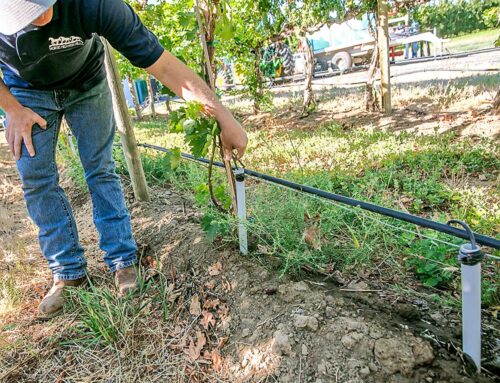
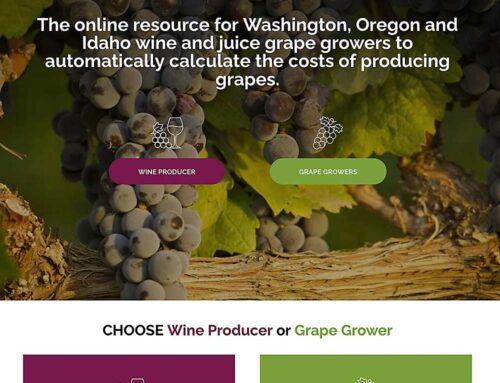
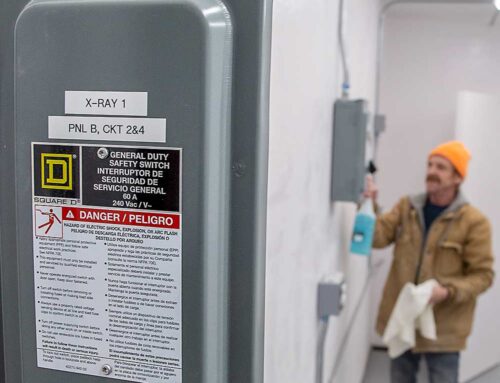
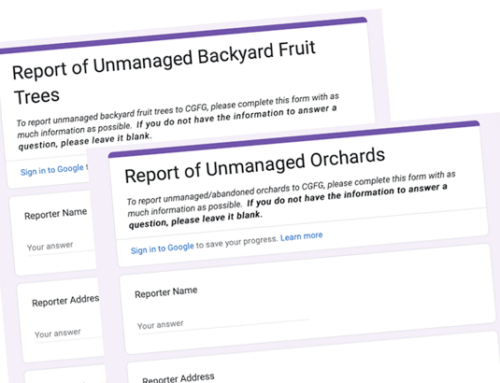
Leave A Comment